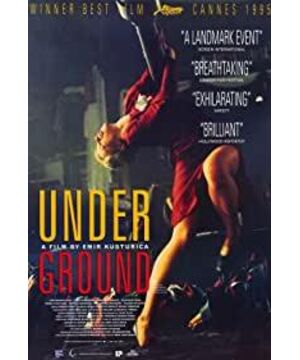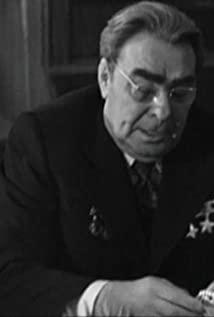What kind of country is Yugoslavia?
2018-07-30 21:27
In history, the country of Yugoslavia has left a deep mark in Europe. It was built on the ruins of the powder kegs of World War I. However, it became stronger and stronger in World War II. It had its source in the Cold War, and finally collapsed quickly after the Cold War. The last bloody battlefield in Europe, what kind of country is Yugoslavia?
Origin of Yugoslavia
Yugoslavia, as the name suggests, is the Slavs of the South. Slavic, Germanic, and Latin are listed as the three major ethnic groups in Europe, and they are also one of the shapers of European history. However, within the Slavic peoples, it can be roughly divided into three ethnic groups, namely, the Eastern Slavs represented by the Obaiwu, the Western Slavs represented by Portes, and the Yugoslavia composed of the Balkan Slavic peoples. people.
(The historical distribution area of Yugoslavia (green), the gray area in the figure is the distribution area of other Slavic peoples)
Early Yugoslavia also lived in the southern Russian grasslands, the birthplace of the Slavic peoples. In the sixth century AD, the Rouran people who originally lived in northern China were under the attack of the Northern Wei Dynasty and the Turks, and the country perished. One of the Rouran people moved west to Europe and was called the Avar. In the process of moving westward, they took part of the Slavs as slaves to the Balkans in the southern Russian grasslands. Later, these Slavs united with the Eastern Roman Empire to overthrow the rule of the Avars and became the masters of the Balkans. They eventually developed into the Yugoslav nations.
The formation of nationalities
After the Avars were driven away, some of the Yugoslav tribes in the Balkans briefly established their own kingdoms, and some formed alliances with the Bulgarians who moved here from Central Asia and became part of the First Bulgarian Empire. Later, they were successively ruled by Hungary, Austria and Ottoman, and finally formed different peoples because of their different histories. During this period, although the various Yugoslav peoples have accepted Christianity one after another, they have different Christian denominations because of their geographical differences: Croatia and Slovenia, which were once ruled by Hungary and Austria, accepted Catholicism. Serbia, Montenegro, and Macedonia, ruled by Bulgaria and Ottoman, accepted the Orthodox Church.
(In the 17th century in Europe, the Balkans at that time belonged to Austria and Ottoman, which also contributed to the formation of different Yugoslav nations)
The establishment and demise of Yugoslavia
In 1878 AD, the Serbs, originally under the rule of the Ottoman Empire, gained independence with the help of Tsarist Russia. After World War II, the Austro-Hungarian Empire, which originally occupied Croatia and Slovenia, was defeated and collapsed, and the two tribes also gained independence. In 1918, these three ethnic groups, together with the relatively small Montenegro that had gained independent status earlier, and other Yugoslav ethnic groups that were originally occupied by the Austro-Hungarian Empire, formed the Kingdom of Serbia-Croatian-Slovenia. In 1929, the kingdom was renamed the Kingdom of Yugoslavia. In 1941, the Nazis invaded Yugoslavia and the Kingdom of Yugoslavia perished. Later, the Croatian Tito led the Communist Party of Yugoslavia to carry out anti-German guerrilla warfare throughout Yugoslavia, and finally forced Germany to withdraw in 1945, and the Federal People's Republic of Yugoslavia was established. In 1963, the name of Yugoslavia was changed to the Socialist Federal Republic of Yugoslavia.
During the Cold War, Yugoslavia was a socialist country, but because it was not established with the help of the Soviet Union, it was not politically controlled by the Soviet Union. Instead, it maintained its independence and became the initiator of the World Non-Aligned Movement. Throughout the Cold War, the relationship between Yugoslavia and the West was significantly better than that between the Soviet Union and Eastern Europe. Western literary films were free to enter Yugoslavia. Every year, more than 6 million Westerners went to Yugoslavia for vacation. It can be said that Yugoslavia is the only socialist country that has always depended on the Western camp economically and has been accepted by the West to a certain extent politically. In 1984, Sarajevo, Yugoslavia also hosted the Winter Olympics, becoming the first socialist country to host the Winter Olympics, and it did not receive Western resistance.
(Yugoslavia before the split in 1991)
However, after Tito's death in the early 1980s, ethnic differences in Yugoslavia due to different histories surfaced, and ethnic conflicts gradually deepened. After the drastic changes in the Soviet Union and Eastern Europe, the ethnic conflicts in Yugoslavia became public. In 1991, Slovenia was the first to declare independence, followed by Croatia, Macedonia and Bosnia and Herzegovina, and the Yugoslav Civil War broke out. During this period, Serbia and Montenegro, which had not declared independence, changed the name of Yugoslavia to the Federal Republic of Yugoslavia in 1992. On various battlefields, the Yugoslav Civil War lasted intermittently for four years. Among them, the War in Bosnia and Herzegovina was the heaviest in the later period, with a total of nearly 300,000 deaths. The siege of Sarajevo that occurred during this period is estimated to have killed more than 10,000 Sarajevo citizens, shaking Europe. Under the intervention of the European Union and NATO, Yugoslavia was eventually forced to agree to the independence of the four countries of Skomapo.
(The process of the split of Yugoslavia)
Later in 1999, NATO launched a military attack on Yugoslavia under the pretext that the Albanians in Kosovo were ethnically cleansed, and finally forced Yugoslavia to grant Kosovo autonomy. In 2003, the Yugoslav Parliament passed a resolution to change the name of the country to Serbia and Montenegro. Yugoslavia, which had existed for 85 years, ceased to exist. In 2006, Montenegro became independent, and Yugoslavia’s last legacy died out
View more about Underground reviews









